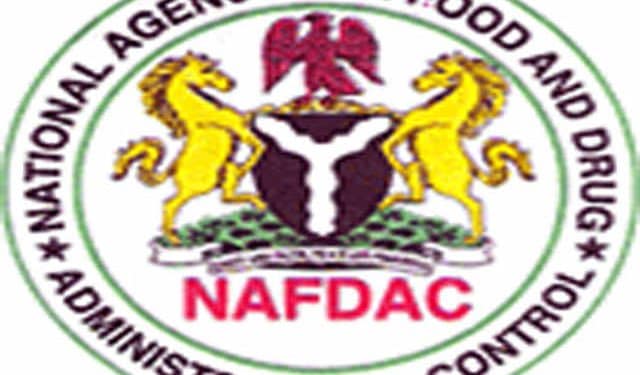The Director-General of NAFDAC, Prof. Mojisola Adeyeye, attributed the agency’s achievements to the resilience, dedication, and collective effort of staff, highlighting their role in sustaining regulatory excellence across Nigeria.
Speaking at the 2024 NAFDAC Awards, Recognition, and Retirement Ceremony in Lagos on Monday, Adeyeye commended staff for their contributions to the agency’s operational success and for raising Nigeria’s profile globally.
She noted that staff efforts enabled NAFDAC to achieve the WHO Global Benchmarking Tool (GBT) re-benchmarking, positioning the agency as the first in Africa to maintain Maturity Level 3 for medicines regulation.
Adeyeye said the milestone demonstrated Nigeria’s leadership in global regulatory standards and underscored the importance of staff dedication, professionalism, and teamwork in achieving international recognition and regulatory excellence.
The awards ceremony, she said, was not only a celebration of milestones but a tribute to the agency’s workforce, whose commitment, resilience, and integrity continued to define NAFDAC’s legacy of public service.
“Each year, the ceremony allows us to pause, reflect, and appreciate how far NAFDAC has come, and recognise the collective effort of staff in advancing public health and regulatory compliance,” she added.
Adeyeye emphasised that the agency’s achievements resulted from deliberate diligence, shared purpose, and the daily efforts of staff conducting inspections, writing reports, mitigating risks, and enforcing regulations to protect public health.
She said under the collective effort of staff, NAFDAC became the first African agency to sustain ML3 for medicines and also the first globally benchmarked authority for Medical Devices and In-Vitro Diagnostics.
She stressed that those accomplishments were not the work of leadership alone, but the outcome of teams of professionals committed to ensuring agency processes met WHO’s rigorous standards consistently.
In 2024, NAFDAC also commissioned a state-of-the-art building for the Vaccine, Biologics, Medical Devices, and IVDs Registration and Regulatory Affairs Directorate, representing investment in innovation, science, and sustainable health regulation.
Adeyeye highlighted the agency’s continued ISO/IEC 17025:2017 laboratory accreditation and ISO 9001:2015 re-certification, crediting quality managers, laboratory analysts, and administrative staff for ensuring compliance, continuous improvement, and international best practices.
She noted NAFDAC’s incorporation into the Pharmaceutical Inspection Co-operation Scheme (PIC/S) as a Pre-Applicant in the Pre-Accession phase, placing Nigeria among nations upholding harmonised Good Manufacturing Practice standards globally.
The D-G added that enhanced enforcement operations, in partnership with the Office of the National Security Adviser, led to shutdowns of major open drug markets and the seizure of falsified medicines, saving countless lives.
“No achievement can be sustained without investing in human capital,” Adeyeye said, noting staff received advanced training under ICH programmes, including ICHQ1, ICHQ7, E6(R3), and M13 Bioequivalence Studies, strengthening regulatory expertise.
She said the implementation of those guidelines resulted in NAFDAC being invited to join the prestigious International Council on Harmonisation, reflecting the agency’s global credibility, staff competence, and consistent delivery of regulatory standards.
Awardees at the ceremony exemplify excellence, dedication, and consistency, she said, raising the bar for colleagues and inspiring continued innovation, diligence, and high-quality service across all directorates of NAFDAC.
Adeyeye also paid tribute to retirees, acknowledging decades of dedicated service, mentorship, and integrity, emphasising that their contributions left a lasting legacy in NAFDAC’s systems, policies, and organisational culture.
“The global health landscape continues to evolve, and we must evolve with it,” she said, urging staff to remain agile, science-driven, and people-centered, recognising their vital role in safeguarding millions of Nigerian lives.



